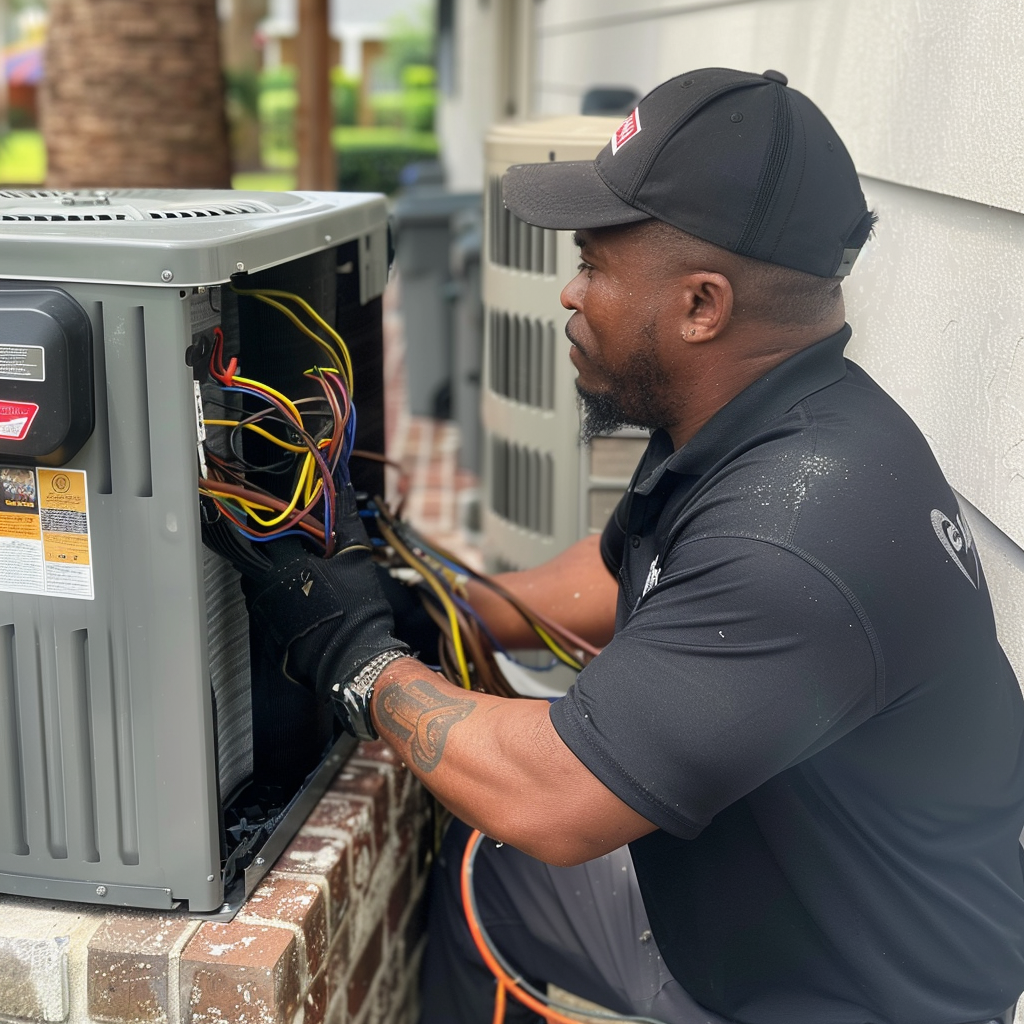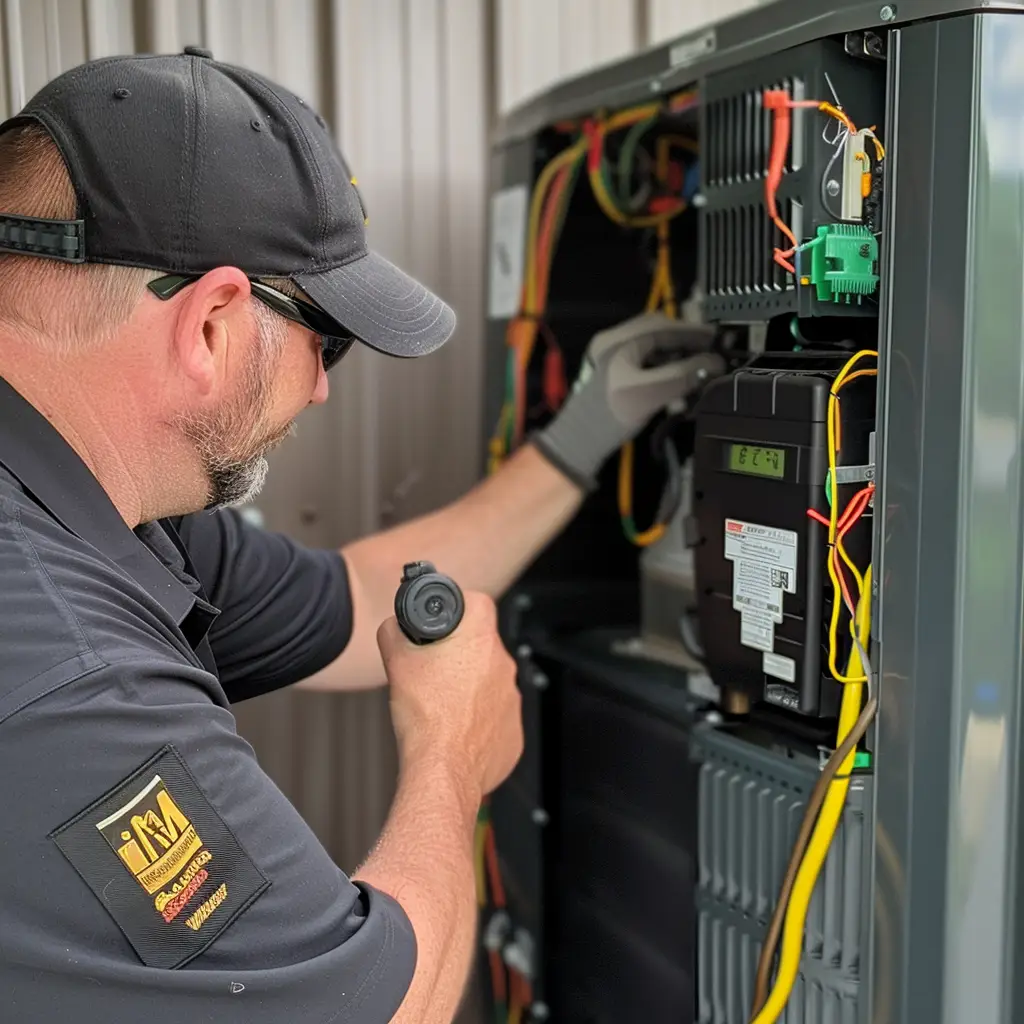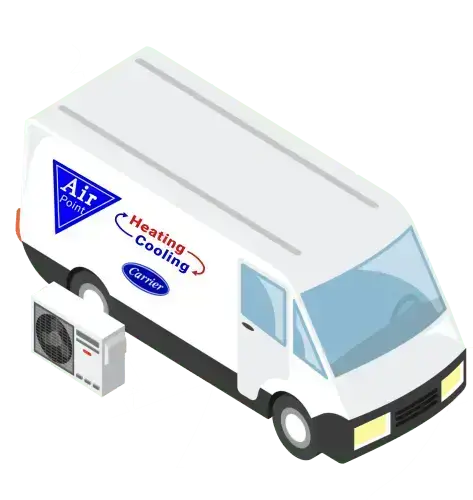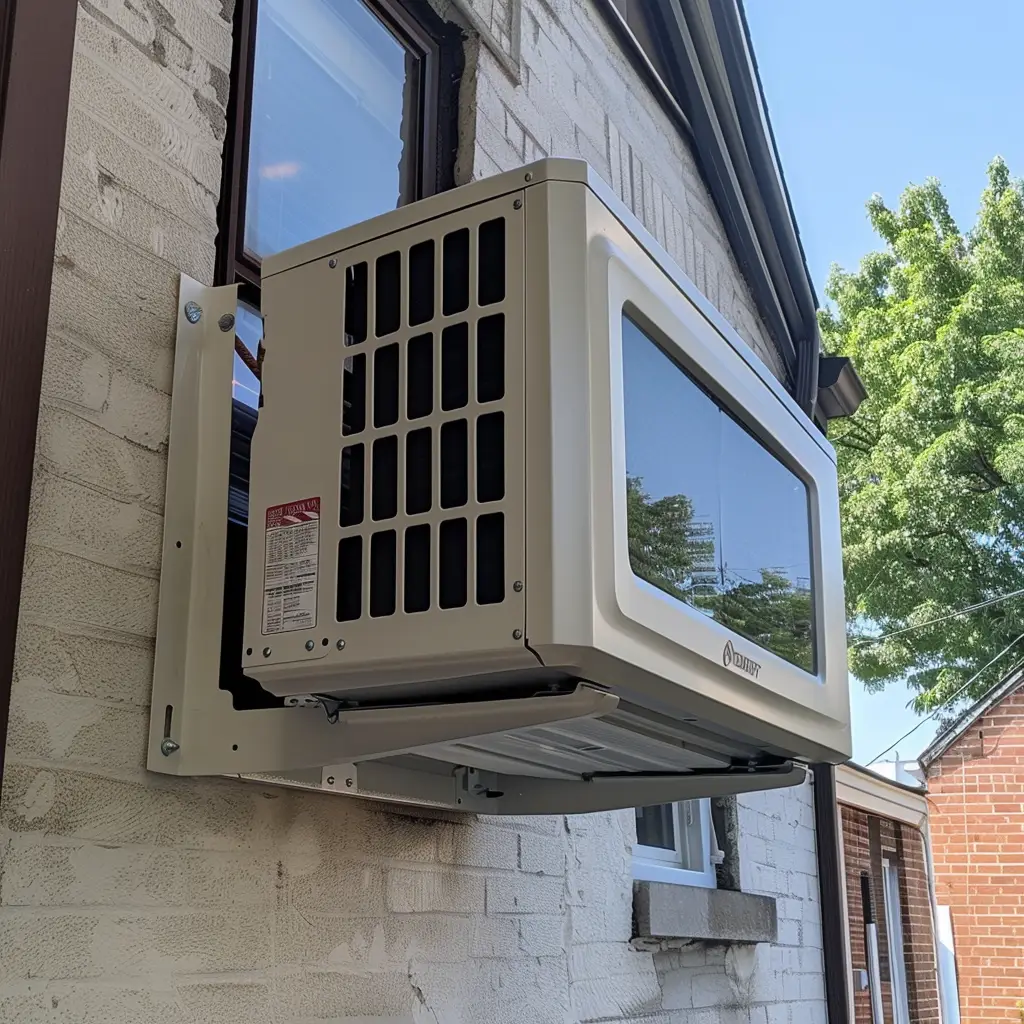Maintaining your air conditioner isn’t just about keeping it running smoothly; it’s also crucial for extending its lifespan, improving energy efficiency, and ensuring your home’s air quality. This guide provides easy-to-follow steps and professional advice to help you keep your HVAC system in top shape, complemented by insights on improving air conditioner efficiency.
Why Routine AC Maintenance is Essential
Routine maintenance helps prevent unexpected breakdowns, saves on costly repairs, and keeps your system running at peak efficiency. Dr. Sarah D. Kirby, a professor at North Carolina State University, emphasizes that a well-maintained AC unit ensures comfort, better air quality, and energy efficiency by controlling moisture and preventing the growth of microorganisms like mold.
The Best Times for Maintenance
The optimal times to perform these maintenance tasks are just before the cooling and heating seasons begin, ensuring your system is prepared to handle the upcoming weather changes efficiently. Discover more about seasonal HVAC maintenance to further enhance your system’s reliability.
Comprehensive Seasonal Maintenance Checklist

Spring Preparation
- Power Safety: Ensure all power to the unit is turned off at both the exterior shut-off and the breaker box to safely perform maintenance.
- External Cleaning: Remove debris from around the condenser unit, clean the fan cage, and clear the area of leaves and branches to ensure unobstructed airflow.
- Fin Maintenance: Use a soft brush to clean the fins and a garden hose to wash away dirt gently. Avoid using a pressure washer to prevent damage.
- Check for Level: Ensure the outdoor unit is level as an uneven base can cause early compressor failure. Adjust as necessary using rot-resistant shims.
Fall Readiness
- Evaporator Coil Cleaning: Inside the blower/furnace unit, clean the evaporator coil with a no-rinse coil cleaner to prevent dust and dirt accumulation that can impede efficiency.
- Drain Maintenance: Clear the evaporator drain of any algae or mold buildup to prevent blockages and potential water damage.
- Filter Replacement: Change the HVAC filter to maintain air quality and system efficiency. This should be done at least twice a year, adjusting frequency based on your environmental conditions.
Signs You Need Professional AC Maintenance
While many maintenance tasks can be DIY, certain signs require professional attention:
- Strange Noises or Smells: Indicative of mechanical issues or mold growth.
- Reduced Cooling Efficiency: If your AC isn’t cooling as effectively, it might need more than just basic maintenance.
- Refrigerant Issues: Only professionals should handle refrigerant due to the tools and expertise required.
DIY Tips and Safety Precautions
- Safety First: Always disconnect power before starting maintenance to avoid electrical hazards.
- Regular Cleaning: Keeping the area around your AC clean and free from debris is something you can do regularly without much technical skill.
- Proper Tool Use: Use the right tools for tasks like straightening fins—common household items like a butter knife can be used carefully to avoid damaging the coils.
Trust AirPoint for Expert AC Maintenance
Choosing the right partner for maintaining your air conditioning system is crucial for ensuring it runs efficiently and lasts longer. At AirPoint, we pride ourselves on being a Carrier factory authorized dealer and NATE certified in Toronto, showcasing our commitment to providing the highest standard of service. Recognized as the HomeStars Best of the Best 2023, we have consistently earned 5 stars on Google and HomeStars, reflecting our commitment to excellence in every job we undertake. Our technicians are fully certified by TSSA, HRAI, and CSA, ensuring that your HVAC systems are handled by qualified professionals. Trust us to keep your AC in peak condition — we’re dedicated to your comfort and satisfaction.
To learn more about the steps involved for an ac maintenance, watch this video by Mikey Pipes – Pipe Doctor Plumbing & Heating & Air, organizer
Frequently Asked Questions About Air Conditioner Maintenance
How often should I check my AC filters?
Check monthly and replace as needed, typically every 1-3 months depending on usage and environmental factors.
Can I perform all AC maintenance myself?
While many tasks are DIY-friendly, certain aspects, like checking refrigerant levels and in-depth electrical repairs, should be handled by professionals.
What is the best way to improve my AC’s efficiency?
Regular cleaning, proper insulation, and timely replacement of filters are key steps.
How do I know if my AC system needs more refrigerant?
If your AC is not cooling effectively and you notice ice on the compressor, it might be low on refrigerant and requires a professional check.
Should I cover my AC unit during winter?
Cover the top of the unit to protect it from debris but ensure the sides are not completely covered to prevent moisture buildup and corrosion.




